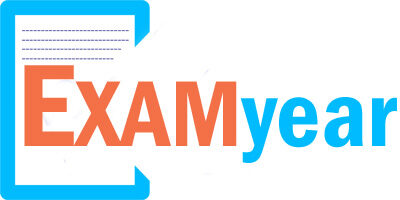Mock Test on Law – Legal Questions Objective
Interested users can download the Mock Test on Law from the links enclosed below. Download the Last 5 Years Mock Test on Law Solved along with the Answers of each question.

This Mock Test on Law may vary from the Actual paper. Use the Mock Test on Law as a reference for the exam preparation. Check the Mock Test on Law from this page.
At the bottom of this page, you will find ‘Click here links’ for downloading the Mock Test on Law. Click on the required link & download your related Mock Test on Law to make as a reference for your scheduled preparation.
Mock Test Question Papers on Law
1. In the ND&PS Act,1985 the “illicit traffic”, in relation to narcotic drugs and psychotropic substances, means –
(a) cultivating any coca plant or gathering any portion of coca plant;
(b) engaging in the production, manufacture, possession, sale, purchase, transportation, warehousing, concealment, use or consumption, import inter-State, export inter-State, import into India, export from India or transshipment, of narcotic drugs or psychotropic substances
(c) both (a) & (b) are correct
(d) None of these
2. The Act is design to fulfill India’s treaty obligation under –
(a) Single Convention on Narcotic Drug, 1961
(b) Convention on Psychotropic substance
(c) United Nations Convention Against illicit Traffic in Narcotic Drug and P.S.
(d) All of these
3. Which chapter deals with National Fund for Control of Drug Abuse
(a) Chapter II A
(b) Chapter III
(c) Chapter IV
(d) Chapter V
4. Which country began to campaign for a worldwide law against all drug; following the adoption of the single convention on Narcotic Drugs
(a) The UK
(b) The United States
(c) France
(d) Germany
5. An offender of this Act of any offence for which no punishment is separately provided shall be punishable with ___
(a) Imprisonment for a term which may extend to six months only
(b) Imprisonment for a term which may extend to one year
(c) Imprisonment for a term which may extend to six months or with five, or with both
(d) Imprisonment for a term which may extend to one year , or with five, or with both
6. Which of the following is a condition for the applicability of section 360 of the Code of Criminal Procedure 1973 and of the probation of offenders Act, 1958
(a) An offender is under eighteen years of age
(b) An offender is under twenty one years of age
(c) Or that the offence is punishable with under Section 26 A, Section 27 of this Act
(d) Condition of (a) and (c) both
7. Which is true regarding the Special Court constituted by the Act?
(a) A special Court shall consist of a Single Judge
(b) The Judge of a Special Court of the Act shall be appointed by the Government with the concurrence of the Chief Justice of the High Court
(c) A person shall not be qualified for appointment as a Judge of a Special Court unless he is immediately before such appointment, a sessions Judge or additional sessions Judge
(d) All of the above is true
8. Which of the following is the current definition of a Commercial quantity for Cocaine?
(a) 100 gram
(b) 50 gram
(c) 250 gram
(d) 100 milligram
9. The “Narcotic Drugs and Psychotropic Substances Consultative Committee” shall consist of Chairman and such other members:
(a) not exceeding ten
(b) not exceeding fifteen
(c) not exceeding twenty
(d) not exceeding twenty five
10. Which of the following is the right combination of the current definition of a small quantity and a commercial quantity for Ganja?
(a) 2 gram (0.07102) and 50 gram (1.802)
(b) 2 gram (0.07102) and 5 gram (0.1802)
(c) 1 kilogram (2.21b) and 20 kilogram (44 lb)
(d) None of these
11. Which of the following is the correctly matched combination of the current definition of a small quantity and a commercial quantity for opium?
(a) 2 milligram (0.031gr) and 100 milligram (1.5 gr)
(b) 2 gram (0.07102) and 50 gram (1.802)
(c) 5 gram (0.1802) and 250 gram (8.802)
(d) 25 gram (0.8802) and 2.5 kilogram (5.5lb)
12. Applicability of section 360 of the Code of Criminal Procedure 1973 is effective of the NDAPS Act when –
(a) The person convicted of an offence under this Act is under eighteen years of age
(b) The person convicted of an offence under this Act is under sixteen years of age
(c) The person convicted of an offence under this Act is under twenty one years of age
(d) The person convicted of an offence under this Act is under eighteen years of age and convicted under section 26 or section 27 of the ND&PS Act
13. Judge of a special court shall be appointed by the Government with the concurrence of
(a) The Judge of the High Court
(b) The Chief Justice of the High Court of that State where the special court situates.
(c) The Chief Justice of the Supreme Court of India
(d) Governor of the state in which the special court situates
14. Special court constituted under the Act shall consists of
(a) A single judge
(b) Two judge
(c) Three judge
(d) None of these
15. Provision of appeal and revision against the order of Special Court has been mentioned under _____________of the ND&PS Act.
(a) Section 36 A
(b) Section 36 B
(c) Section 36 C
(d) None of these
16. The power to add to or omit from the list of Psychotropic substances specified in the schedule belongs to-
(a) Central Government
(b) State Government
(c) Both (a) and (b)
(d) None of these
17. Which of the following Essential Narcotic Drugs that was restricted under the ND&PS Act, 1985 received relaxation of the ND&PS (Amendment) Act, 2014 for making them more accessible for use in pain relief and palliative care
(a) Morphine
(b) Fertanyl
(c) Methadone
(d) All of these
18. The words and expressions used in the Act but not defined received the meaning define in
(a) Indian Penal Code, 1860
(b) The Code of Criminal Procedure, 1973
(c) Civil Procedure Code
(d) None of these
19. Which of the following is an advisory body to the Central Government of the Act?
(a) The Central Board of Excise and Customs
(b) The Narcotics Commission
(c) The Narcotics drugs and psychotropic substance consultation committee
(d) None of these
20. Which of the following is not true about the NDPA(Amendment) Bill 2014?
(a) Multiple State Licenses for possession, purchase, transport, sale, distribution, use and consumption has been continuing and reinforced.
(b) Drugs identified, as essential drugs will be subject to Central Rules under Section 9(1) (a)
(c) Section 71 of the Act authorizes the government to recognize and approve treatment centers which currently operates without license or accreditation and inflict violence and torture on drug users
(d) all of the above is not true
21. As per section 21 of the PC Act, 1988
(a) Accused person to be a competent witness
(b) Accused person is not a competent witness
(c) Accused person will never be witness
(d) None of these
22. Section 5 of the PC Act deals with
(a) Procedure and power of Special Judge
(b) Offences and penalties
(c) Investigation into case under the Act
(d) Preliminary define
23. What should be the qualification for the Special Judge appointed by the authority to try offences under the Act
(a) He should be or should have been a Session Judge or Additional Session Judge
(b) Assistant Session Judge may be appointed in the Special Judge of the Act
(c) Both (a) and (b) are true
(d) None of these
24. Which of the following is not true regarding the Power of a Special Judge under the PC Act?
(a) He may take cognizance of the offences without the accused being commissioned to him for trial
(b) In trying the accused person, he shall follow the procedure prescribed by the Cr.P.C for the trial of warrant cases by Magistrate
(c) He may tender pardon to a person supposed to have been directly or indirectly concerned in an offence in order to obtain the evidence provided such person would make full and true disclosure of the whole circumstances within his knowledge related to the offence.
(d) All of the above is true
25. In which of the following case the Hon’ble Justice Ranganath Mishra has observed the main ingredients of the charge of an offence under section 7 of the PC Act?
(a) Madan Lal vs. State of Himachal Pradesh
(b) State of Rajasthan vs. Shanti
(c) Joseph Fernandez vs State of Goa
(d) R.S. Nayak vs. A.R. Antulay and another
More Question Set on Law MCQs from Various Exam
| Model Question | Old Question |
| Sample Papers | Mock Test |
| Practice Set | Question Bank |
| Important Questions | Test Papers |
| Typical Questions | Selected Questions |
26. Which of the following case reference is relating to the offence of corruption under the PC Act?
(a) R.S. Nayak vs. A.R. Antulay and another
(b) Vineet Narayan vs. Union of India
(c) both (a) and (b)
(d) None of these
27. Which of the following section of the PC Act 1988 deals with taking gratification by a private individual for the exercise of personal influence on a public servant?
(a) Section 8
(b) Section 9
(c) Section 10
(d) None of these
28. Which section of the Act says about appointment of Special Judges?
(a) Section 4
(b) Section 3
(c) Section 5
(d) None of these
29. Chapter IV of the Act deals with:
(a) Offence and penalties
(b) Power of Special Judges
(c) Investigation
(d) Appoint of Special Judge
30. Punishment under section 7 of the PC Acts, 1988 shall be
(a) Not less than three months
(b) Not less than five months
(c) Not less than six months
(d) Not less than one month
31. Section 8 of the PC Acts is rightly corresponding to which section of IPC?
(a) Section 161
(b) Section 162
(c) Section 163
(d) Section 165A
32. The word ‘gratification’ by the PC Acts 1988 is
(a) Restricted to pecuniary gratification only
(b) Is not restricted to pecuniary gratification
(c) Is restricted to pecuniary gratification only which may be estimated in terms of money
(d) None of these
33. Law Commission of India has presented a report relating to the proposed amendments to the Prevention of Corruption (Amendment) Bill 2013. The said report is
(a) 252nd Law Commission of India Report
(b) 253rd Law Commission of India Report
(c) 254th Law Commission of India Report
(d) None of these
34. Law Commission of India 254th Report relates to:
(a) Widening the power of Central Government to cover Private corporate bodies within the term public servant
(b) The proposed amendment to the Prevention of Corruption (Amendment) Bill 2013
(c) To curb the power of Central Vigilance Commission
(d) None of these
35. Which of the following chapter of IPC relates to offence by or relating to Public Servants?
(a) Chapter VII
(b) Chapter VIII
(c) Chapter IX
(d) Chapter X
36. Which of the following Section of this Act deals with the formulation of the guidelines by the State Government
(a) Section 40
(b) Section 38
(c) Section 39
(d) None of these
37. Under Section 44 of the Act which of the following organ has been mandated to implement the provision of the Act in addition to its assigned function
(a) National Human Rights Commission
(b) Nation Commission for Women
(c) Nation Commission for Protection of Child Rights
(d) All of these
38. Which of the following is not true
(a) The Act intends to protect the child through all stage of Judicial process and give paramount importance to the principle of best interest of the child
(b) Using a child for pornographic purposes is outside the scope of this Act
(c) This Act envisages punishing even abetment or an attempt to commit the offences defined in the Act
(d) It is now mandatory for police to register an FIR in all cases of Child Abuse
39. The Notification of POSCO Act took place on:
(a) 12th June, 2012
(b) 15th June, 2012
(c) 20th June, 2012
(d) None of these
40. The Act has defined different form of sexual abuse covering
(a) Penetrative assault and sexual harassment
(b) Penetrative assault, sexual harassment and pornography
(c) Non penetrative assault, sexual harassment but not pornography
(d) Penetrative and non penetrative assault, sexual harassment and pornography
41. Which section of the POCSO Act deals with Medical Examination provisions
(a) Section 39
(b) Section 44
(c) Section 26
(d) Section 27
42. Which section of the Cr.P.C relates to the provision of Emergency Medical Care under the POCSO Act and Rules
(a) S. 257 of Cr.P.C, 1973
(b) S. 357 of Cr.P.C, 1973
(c) S. 357C of Cr.P.C, 1973
(d) S. 358 of Cr.P.C, 1973
43. ICPS stands for
(a) Integrated Child Protection Scheme
(b) International Child Protection Scheme
(c) Integrated Child Protection Standard
(d) Integrated Child Precaution Standard
44. Section 61 of Juvenile Justice Act is relevant for the POCSO Act because
(a) Nation Commission for Protection of Child Rights is constituted under the Act originates from J.J.Act
(b) The Act has defined different form of sexual abuse covering
(c) Counselors engaged externally may be remunerated from the Fund constituted by the State Government under this Act.
(d) None of these
45. An FIR in respect of any offence committed against a Child under this Act is filed under which of the following provision
(a) Section 19(6) of the POCSO Act, 2012
(b) Section 40
(c) Section 44
(d) None of these
46. Section 3 of the Act deals with
(a) Penetrative Sexual Assault
(b) Sexual Assault
(c) Aggravated Sexual Assault
(d) None of these
47. Which of the following punishment is provided for penetrative sexual assault under section 4 of the Act, 2012
(a) Not less than three years of imprisonment which may extend to five years and fine
(b) Not less than five years of imprisonment which may extend to seven years and fine
(c) Not less than seven years of imprisonment which may extend to imprisonment for life and fine
(d) Three years of imprisonment and fine
48. Which of the following is/are the designated authority to monitor the implementation of the Act?
(a) The National Commission for the Protection of Child Right (NCPCR)
(b) The State Commissions for the Protection of Child Rights (SCPCRs)
(c) Both (a) and (b)
(d) None of these
49. Maximum penalty prescribed under the POCSO Act, 2012 is:
(a) Death penalty
(b) Life imprisonment
(c) Imprisonment of 10 years
(d) Imprisonment of 7 years
50. Who among the following perform the role of an intermediary between the authorities and the Child abused under the Act?
(a) The trust person
(b) The counselor
(c) The support person
(d) None of these

